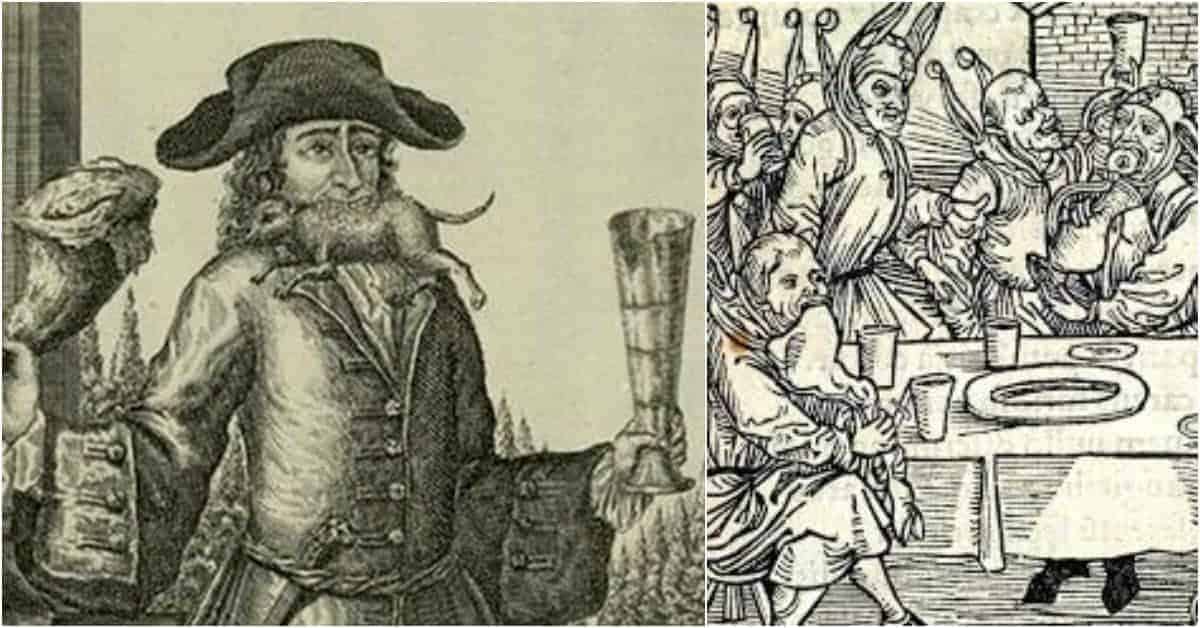Have you ever been really hungry? So hungry that you feel like you would eat anything that someone put in front you of you? Most people have, of course. But have you ever been so hungry that you ate a cat? If not, then you’ve never been as hungry as Charles Domery. In fact, Domery may have had the most extreme appetite in history. His ravenous hunger was so extreme that he would eat anything from small animals to the amputated limb of a comrade. But just who was Charles Domery, and why was he so hungry?
Domery was born in Poland sometime around 1778. He had eight other brothers, all of whom had insatiable appetites. Perhaps because he couldn’t get enough to eat at home, Domery left at 13 to join the Prussian army. And during the War of the First Coalition, Domery found himself with the army in France near the city of Thionville. Deciding that the meager rations he was getting from the Prussians weren’t enough for him, Domery offered to surrender to the French in exchange for some food. The French commander accepted and handed Domery a melon. Domery immediately devoured it in one sitting, rind and all.

Domery decided that the French had more food than the Prussians did, and thus they were the people he wanted to fight for. Domery joined the French army and began to surprise everyone with how much he could eat. He would often devour an entire day’s rations at once and then ask for more. Even after being issued double the rations of the average soldier, Domery spent almost all his pay on extra food. And when there was nothing else to eat, he would even consume 1.8 to 2.3 kg of grass a day.
Domery’s favorite food was a raw bull’s liver, and that seems to be how he liked all his meat. And he didn’t seem to care much where he got it. When camped near Paris, he took to catching cats. According to one French soldier who served with Domery, “In one year, [he] devoured 174 cats, dead or alive. Sometimes he killed them before eating, but when very hungry, did not wait to perform this humane office.” And as horrific as eating cats alive is, Domery’s ravenous hunger would soon lead him to eat something even worse when he was posted on board the Hoche, a French navy vessel.

The Hoche, with Domery on board, was sailing off the coast of Ireland when it was attacked by a squadron of the Royal Navy. As the British ships opened fire with their cannons, one of the French sailors on board the Hoche had his leg blown off. The limb flew across the deck, landing near Domery. Domery seized on the opportunity to eat and began biting chunks off of the leg until a horrified crewmember seized it from him and threw it into the water. Meanwhile, the Hoche was captured and taken back to England, where Domery soon became a medical oddity.

